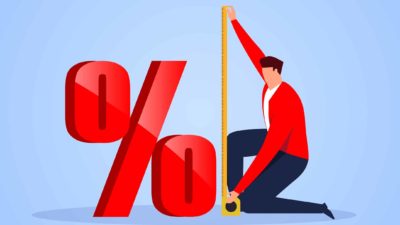The S&P/ASX 200 Index (ASX: XJO) is having a pretty ordinary end to the week and currently is sliding by 0.31% Meanwhile, buy now, pay later operators like Zip Co Ltd (ASX: Z1P) and Afterpay Ltd (ASX: APT) are faring even worse.
At the time of writing, the Zip share price has slumped by 2.48% and Afterpay shares have fallen 1.67%. This follows an overnight sell-off on the tech-heavy Nasdaq but also comes on the heels of news the Reserve Bank of Australia (RBA) is again hinting at the possibility of regulating the BNPL sector.
The news may also be dragging on Commonwealth Bank of Australia (ASX: CBA) shares, currently down 0.68%, after the banking giant recently announced plans to launch its own BNPL offering.
Let's take a closer look at what the RBA discussed in relation to the BNPL sector.
BNPL companies may be banned from dictating 'no surcharge' rules to merchants
In an article published in its Bulletin newsletter yesterday, the RBA reaffirmed it is considering preventing BNPL operators from banning merchants passing on fees to their customers.
Merchant fees, which can be up to 8x more than those charged by credit card providers, cannot be passed onto consumers under the terms of service of most BNPL providers – including Zip and Afterpay. The RBA believes the rules stymie innovation and competition in the sector.
In its article, the Bank provided the example of American Express Company (NYSE: AXP)'s merchant fees having halved over the course of a decade. The article cited the development of increased competition arising from merchants being able to pass on fees to their customers.
Since Zip and Afterpay, among others, don't charge interest or consumer fees (only late fees), the majority of their operating revenues come via merchant fees.
RBA Governor, Philip Lowe, talked about the issue back in December, saying:
"…BNPL operators in Australia have not yet reached the point where it is clear that the costs arising from the no-surcharge rule outweigh potential benefits in terms of innovation."
According to the RBA, less than 1% of "the number and value of consumer transactions" in Australia are currently made using BNPL services.
If the RBA were to regulate removal of the 'no surcharge' rule, research by the Bank suggests around 50% of consumers would switch to an alternative form of payment. According to the RBA, 10% of consumers stated they would cancel the purchase.
However, the RBA is having active discussions internally and with key stakeholders (such as Zip and Afterpay) about what criteria or thresholds would be appropriate for applying the no-surcharge ban.
Zip, Afterpay, and CommBank share price snapshots
The Zip share price has rocketed over the past year. Despite having fallen lower recently, from 12 months ago until now, shares in the company have increased by more than 600%. However, Zip shares have lost 43% of their value since hitting their 52-week high last month.
Afterpay shares, too, have been a dream investment for some over the year. Exactly one year ago, the Afterpay share price was sitting at $9.90. Today's valuation represents a 1,000% return on investment. Yet, just like the Zip share price, Afterpay has been trending lower in 2021. Year to date, the company has lost over 8% of its value.
CommBank, which is making an aggressive push into the BNPL space, has seen relatively modest gains over the past year compared to Zip and Afterpay. Its share price is 'only' 40% higher compared to this time last year. Unlike Zip and Afterpay, however, the CommBank share price has only fallen 4.8% down from its 52-week high.
The market capitalisations of Zip, Afterpay and CommBank are $4.7 billion, $31.7 billion, and $152.1 billion respectively.









